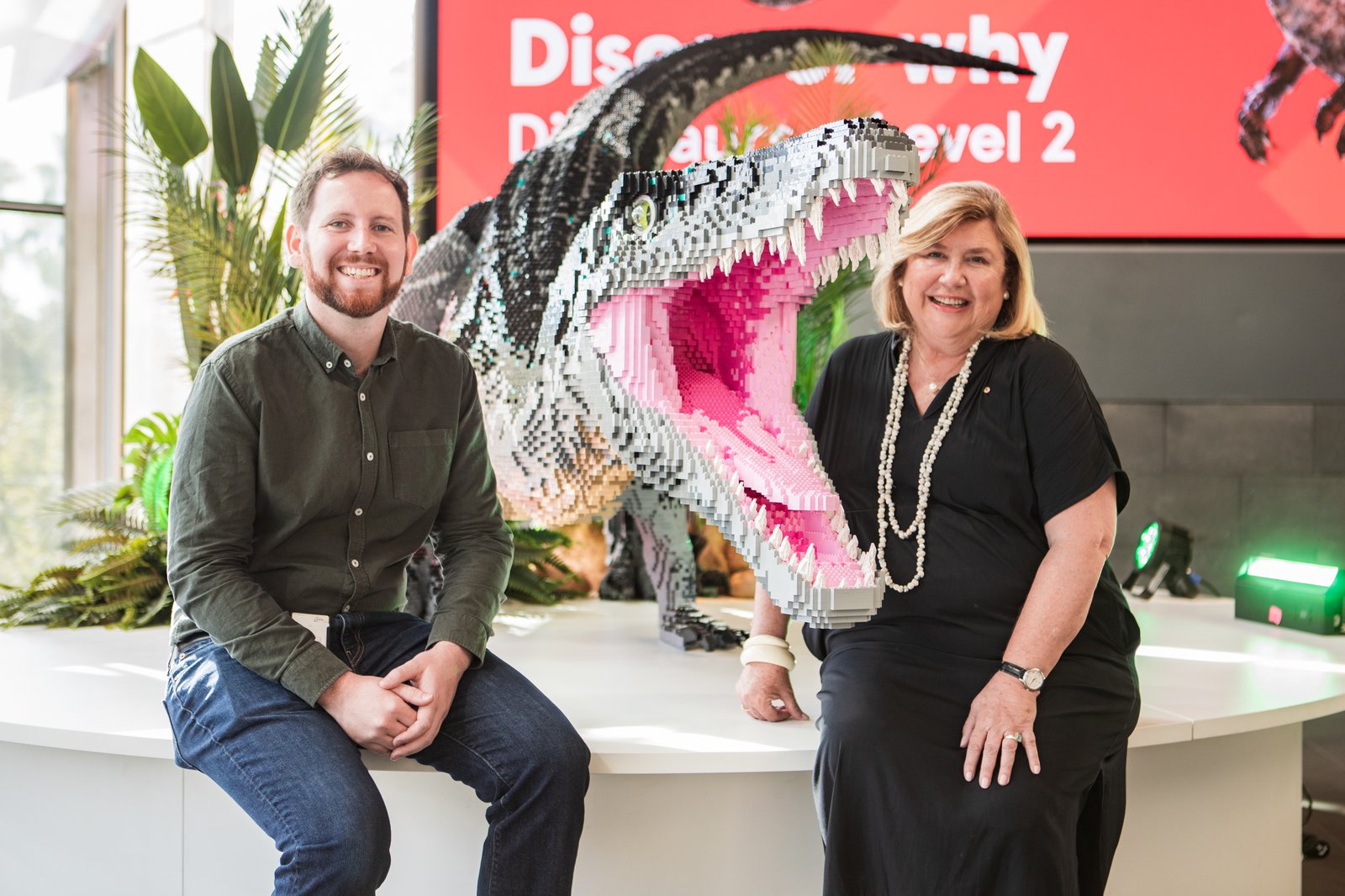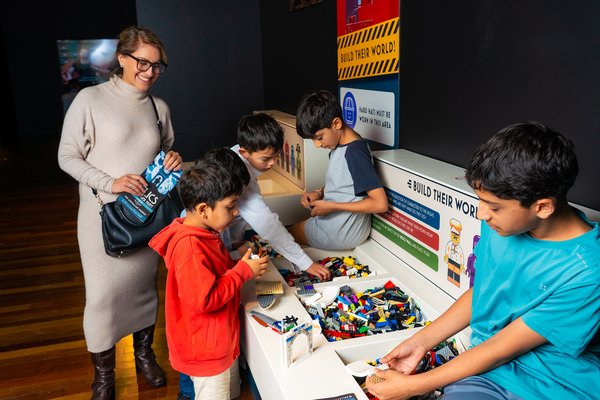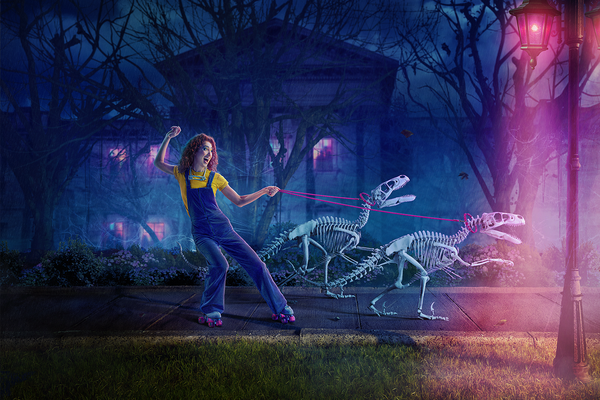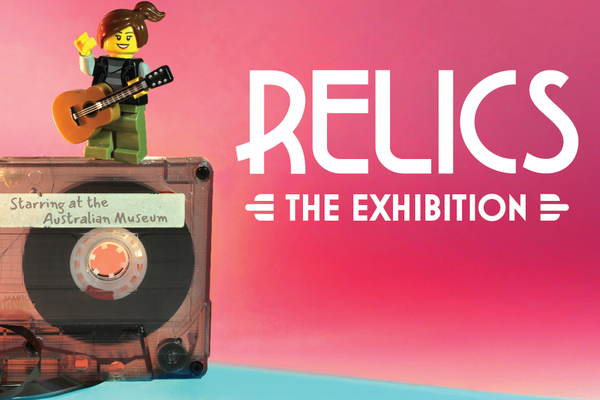Epic Jurassic World LEGO brick creations roar into "the Dinosaur Museum"

© Studio LaTessa
When planning for exhibitions, the museum ‘blockbuster’ discussion never fails in adding a mild squint to a CEO’s clear line of sight.
This is because attendance figures matter. As a hub of science and culture, we want to welcome as many visitors as possible through our doors, inspiring lifelong learning and sparking curiosity through kids of all ages.
And as we know from our homegrown exhibition Tyrannosaurs – Meet the Family, dinosaur blockbusters help draw brand new or unlikely museum-goers through our doors via their individual window of interest, leaving - we hope - with broader curiosity around say, the ease with which earth can lose an entirely dominant group of animals from an invasive mass extinction event. A pretty relevant concept to all of us right now, I’d say.

© Studio LaTessa
And so, enter Jurassic World by Brickman®, open from today Saturday 5 March at the Australian Museum (AM). An interactive Jurassic World recreated with LEGO® bricks. Ryan “The Brickman” McNaught’s uniquely styled concept, as the only LEGO® Certified Professional in the Southern Hemisphere, now lends his creative engineering genius to an immersive scale recreation of over 50 large-scale dinosaurs, props, scenes and activities from the Jurassic World franchise.

© Studio LaTessa
With at least six million LEGO® bricks, these epic creations are sure to inspire new generations of new science communities of all ages and backgrounds. And like museums, LEGO®, is an excellent learning tool. Research has shown that solving puzzles, building blocks and working through design problems help develop children’s coping mechanisms. It may even inspire them to take up science! Afterall, science is looking at a problem and finding a solution.

© Studio LaTessa
Within this exhibition, there are over 2.5 million bricks for LEGO® aficionados to build their own dinosaurs. And dinosaurs remain one of science’s most – if not the most – visceral storytellers; these master conjurors rampage through fertile minds, substituting our regular landscapes of houses, buses, planes, skyscrapers and cars for unpredictable prehistoric ‘celebrities,’ the apex of which remains for many a 42 ft long, three-toed, ballerina-balanced Tyrannosaurus. We think: How did they live? What was life like?
And McNaught is a master making the so-familiar building blocks of LEGO® magically transform into utterly re-imagined lost worlds. A new Baryonyx model has even been revealed at the AM as part of the blockbuster exhibition. Welcoming visitors through Brian Sherman Crystal Hall, the Baryonyx weighs 400kg, took 790 hours to design and was created using 102,317 LEGO® bricks! She is 4.8m long, over 1.5m wide and stands 2.5m high.

© Australian Museum
I caught up with AM Palaeontologist Dr Matt McCurry regarding this newest Jurassic World by Brickman® dinosaur and he let me know the Baryonyx was a large, fish-eating dinosaur with sharp, finely serrated teeth. Its mouth shape was very similar to that of a crocodile. This species lived in the Early Cretaceous – around 125 million years ago. It was found in England, Spain and the United Kingdom. Dr McCurry also let me know that as a child growing up, he loved playing with LEGO® and that the original Jurassic Park movie helped inspire his love of dinosaurs and fossils.
We want people to then find their best way in, and then find their onward way of ‘knowing’. That is the real learning point, of blockbuster exhibitions like these. Plan your visit to try your hand at building adaptive new worlds, and join us for special workshops and Masterclasses for LEGO® lovers of all ages. Come along and have a go – no learning opportunity is wasted!












